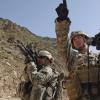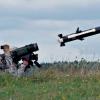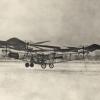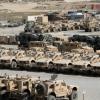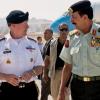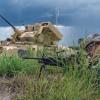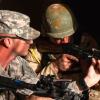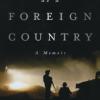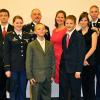Spc. Salvatore A. Giunta’s Medal of Honor citation reads, “Specialist Giunta then advanced forward on his own initiative. As he crested the top of a hill, he observed two insurgents carrying away an American soldier. He immediately engaged the enemy, killing one and wounding the other. Upon reaching the wounded soldier, he began to provide medical aid, as his squad caught up and provided security. Specialist Giunta’s unwavering courage, selflessness and decisive leadership while under extreme enemy fire were integral to his platoon’s ability to defeat an enemy ambush and recover a fellow...
The U.S. Army loves to learn. At some point, we all look to learn about how to become better at the profession of arms. I remember wandering around some hills in South Korea as a young second lieutenant during a particularly snowy January with a well-worn copy of T.R. Fehrenbach’s This Kind of War, trying to find old Korean War positions to further my knowledge of being an infantry officer. Like so many before me, I was a student of the military profession. I knew in order to master my new profession, I needed to learn.As an institution, the Army places learning—in this case, the process of...
Maj. Thurman H. Bane, commanding officer of the technical department for American aeronautics in the engineering division of the Air Service, became convinced that a military role existed for rotary-wing aircraft after reading papers by Russian scientist George de Bothezat on the “theory of lifting screws,” setting forth detailed data for designing helicopter rotors. Bane wrote to his superiors: “The Air Service should undertake some positive steps toward the solution of some of the very difficult problems associated with helicopter development.”Bane, convinced that the most significant...
Never before in the history of the U.S. Army have our logisticians been so challenged, and subsequently risen to the occasion so fervently as during the past three years.Following more than a decade of war, a deliberate retrograde, reset, redeployment, redistribution and disposal (R4D) process began in 2012 to move tens of thousands of pieces of equipment out of Afghanistan. December 2014 marked the end of combat operations in Afghanistan, and while equipment still remains in theater in support of the troops there, the vast majority has quietly and successfully reached its postwar destination...
The dual realities of an increasingly volatile Middle East and fiscal austerity after 13 years of war have led DoD and the military services to explore new initiatives on how to achieve security requirements outlined in the 2012 Defense Strategic Guidance and the 2014 Quadrennial Defense Review.One such initiative the Army continues to implement—the concept of regionally aligned forces—is evident in U.S. Army Central’s role in supporting the U.S. Central Command Forward-Jordan (CF-J) mission.To better understand the great utility of the CF-J mission, it is useful to highlight and reference...
The dual realities of an increasingly volatile Middle East and fiscal austerity after 13 years of war have led DoD and the military services to explore new initiatives on how to achieve security requirements outlined in the 2012 Defense Strategic Guidance and the 2014 Quadrennial Defense Review.One such initiative the Army continues to implement—the concept of regionally aligned forces—is evident in U.S. Army Central’s role in supporting the U.S. Central Command Forward-Jordan (CF-J) mission.To better understand the great utility of the CF-J mission, it is useful to highlight and reference...
The dual realities of an increasingly volatile Middle East and fiscal austerity after 13 years of war have led DoD and the military services to explore new initiatives on how to achieve security requirements outlined in the 2012 Defense Strategic Guidance and the 2014 Quadrennial Defense Review.One such initiative the Army continues to implement—the concept of regionally aligned forces—is evident in U.S. Army Central’s role in supporting the U.S. Central Command Forward-Jordan (CF-J) mission.To better understand the great utility of the CF-J mission, it is useful to highlight and reference...
The dual realities of an increasingly volatile Middle East and fiscal austerity after 13 years of war have led DoD and the military services to explore new initiatives on how to achieve security requirements outlined in the 2012 Defense Strategic Guidance and the 2014 Quadrennial Defense Review.One such initiative the Army continues to implement—the concept of regionally aligned forces—is evident in U.S. Army Central’s role in supporting the U.S. Central Command Forward-Jordan (CF-J) mission.To better understand the great utility of the CF-J mission, it is useful to highlight and reference...
Peace in our time, which is what Neville Chamberlain called for in a 1938 speech, remains as elusive today as it did after World War I. While the Army has been getting smaller as large-scale combat operations ended in Iraq and Afghanistan, the world is not close to peace at all.Defense Secretary Ashton Carter made this clear in a message to the entire Defense Department on the day he was sworn into office. “We confront a turbulent and dangerous world: continuing turmoil in the Middle East and North Africa, and the malignant and savage terrorism emanating from it; an ongoing conflict in...
The U.S. and others have been fighting al Qaeda and their ilk for going on 15 years. After countless drone strikes, special operations raids and two invasions, we have killed Osama bin Laden and scores of other key leaders. Our enemy may be disrupted periodically, but they are far from being dismantled or defeated. Why is that? Partly, it’s because they have proven to be more resilient and adaptive than we expected, but it is also partly because we are our own obstacle to taking effective counteraction. We still don’t understand the kind of war we’re in, haven’t structured a proper strategy to...
Keep Fighting, Keep WritingMy Life as a Foreign Country: A Memoir. Brian Turner. W.W. Norton & Co. 222 pages. $23.95.By Ron Capps
Keep Fighting, Keep WritingMy Life as a Foreign Country: A Memoir. Brian Turner. W.W. Norton & Co. 222 pages. $23.95.By Ron Capps
Keep Fighting, Keep WritingMy Life as a Foreign Country: A Memoir. Brian Turner. W.W. Norton & Co. 222 pages. $23.95.By Ron Capps
Keep Fighting, Keep WritingMy Life as a Foreign Country: A Memoir. Brian Turner. W.W. Norton & Co. 222 pages. $23.95.By Ron Capps
AUSA’s Family Readiness Directorate is dedicated to providing Army families the assistance they need to help them manage the challenges of military life.Through four pillars of support – education, information, advocacy, and outreach – AUSA Family Readiness provides a platform from which Army families can voice their issues and concerns.We also serve as a vehicle to increase the resilient navigation of the military family life cycle.In 2014, the AUSA Family Readiness Directorate focused heavily on connecting with Army families at the local level.In April, AUSA Family Readiness partnered with...


